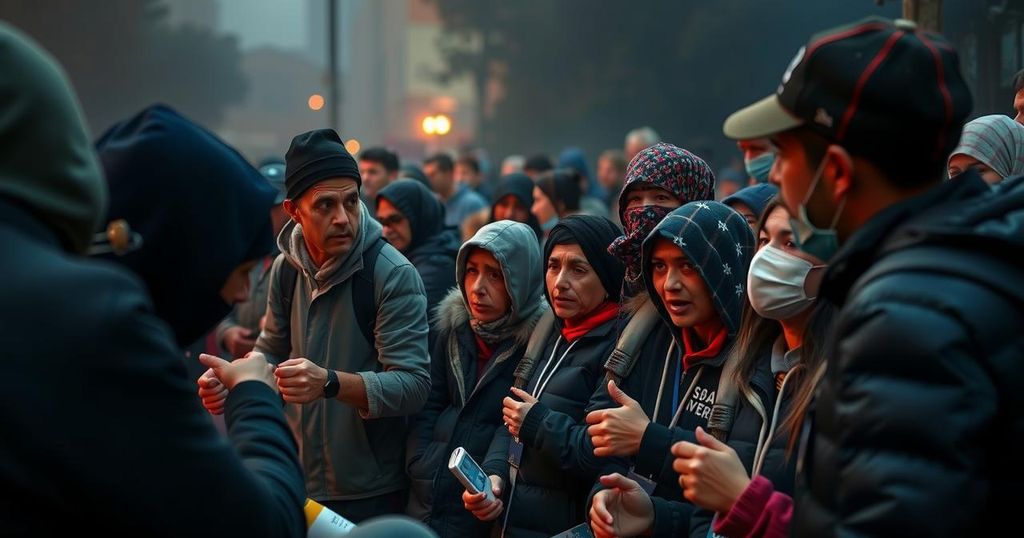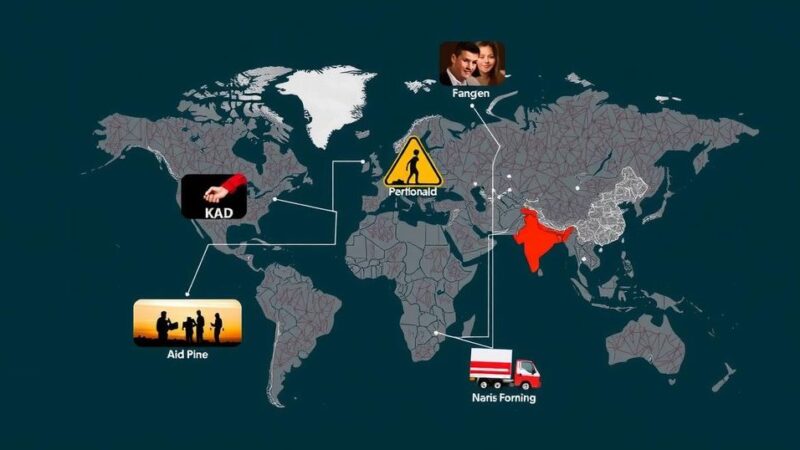Bangladeshi nationals fled Israeli airstrikes in Lebanon, recounting their perilous experiences and the loss of homes and belongings. Morium Begum, Shila Khatun, and Mohammad Uzzal shared their harrowing stories, highlighting the dangers faced and their urgent need for safety amidst rising casualties and humanitarian challenges.
In the midst of escalating violence in Lebanon, Bangladeshi nationals are recounting harrowing experiences as they flee Israeli airstrikes. Morium Begum, a mother of two, expressed her anguish and uncertainty as she escaped from Nabatieh, an area subjected to intense bombardment in late September. Describing the chaos, she lamented, “There were huge explosions everywhere and continuous bombing around me.” Amidst the terror, she and her fellow compatriots sought refuge in Saida, approximately 30 kilometers away, where they were met with assistance from the Bangladeshi embassy and local NGOs, accommodating around 300 migrant workers. Begum, having spent 14 years abroad, returned home empty-handed, highlighting the perilous situation that forced her evacuation: “The situation was very, very dangerous. I didn’t even get the chance to bring any clothes with me.” The Lebanese Health Ministry reported a death toll exceeding 2,600 due to Israel’s attacks since October began, with over 12,200 injuries affecting civilians and essential infrastructure. Shila Khatun, another Bangladeshi worker who narrowly escaped the destruction of her workplace, shared a similar harrowing account. “I would have been dead if I stayed there for two or three days more,” she recounted, reflecting the dire predicament faced by many. Despite reaching Saida, Khatun noted the persistent threat as she witnessed a bomb drop perilously close to the shelter: “It was like hell on earth… at one point, I lost all hope.” The plight of the approximately 70,000 to 100,000 Bangladeshi nationals residing in Lebanon is compounded by complicated repatriation processes, exacerbated by airport closures and documentation issues, as highlighted by the Ministry of Foreign Affairs. Mohammad Uzzal, who worked at a local restaurant, articulated his relief upon being found by his employer after he and others evacuated to Saida. “I feel lucky,” he stated, as he managed to retrieve his passport and wages. Echoing the sentiments of his compatriots, Uzzal expressed profound gratitude for his safety. “To me, this is like a second life.”
The article discusses the plight of Bangladeshi nationals in Lebanon amidst the ongoing conflict between Israel and Lebanon, which escalated in October 2023. It highlights the experiences of several individuals who were forced to evacuate their homes due to the dangers posed by Israeli airstrikes. The humanitarian crisis facilitates the backdrop against which these workers recount their fears, losses, and the prevailing threat to their safety. With an estimated 70,000 to 100,000 Bangladeshis in Lebanon, the challenges regarding their repatriation under the current circumstances are significant and raise concerns about their welfare during such turbulent times.
The accounts of Morium Begum, Shila Khatun, and Mohammad Uzzal starkly illuminate the dangers faced by Bangladeshi nationals in Lebanon due to the recent conflicts. Their shared experiences of fear, loss of home and belongings, and the desperate search for safety underscore the humanitarian crisis affecting migrant workers in the region. The situation remains critical as the death toll rises, further complicating their repatriation and raising urgent calls for international attention and support.
Original Source: www.arabnews.com






